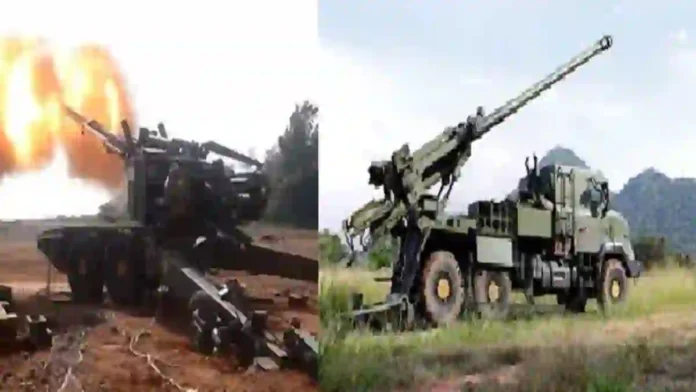In 2012, Bharat Forge, a company traditionally known for its forging expertise, made a bold foray into defence manufacturing by exhibiting its first indigenous artillery gun at a defence exhibition in Delhi.
The response from the military establishment was dismissive; as company chairman Baba Kalyani recounted, “A lot of army guys walked by, some laughed at it. But not a single guy stopped to even see what the hell it was.
It was for a simple reason that they did not believe that some Indian company called Bharat Forge could make guns. Everybody believed in imports”. This scepticism was rooted in the prevailing belief that only global suppliers could deliver quality defence equipment, and Indian private sector participation in such a field was virtually unheard of.
Baba Kalyani’s inspiration to diversify into defence came after the 2008 financial crisis, driven by both a personal fascination with artillery—shaped by his military school background and connections with senior armed forces personnel—and a professional realisation: artillery guns are fundamentally products of forging and metallurgy, Bharat Forge’s core strengths.
Despite this, the Indian defence sector at the time was a public sector monopoly. Defence manufacturing was the exclusive domain of ordnance factories and public sector undertakings, with private players barred from entering the field.
Kalyani’s attempts at political outreach during this period were met with silence. Meetings with then Prime Minister Manmohan Singh and Defence Minister AK Antony yielded no substantive response, reflecting the inertia and lack of receptiveness to private sector innovation in defence.
Read- India’s Indus Treaty Suspension Leads To Water Crisis In Pakistan
The company’s efforts to indigenise defence production, including a proposal dating back to the 1970s, languished for decades while India continued to import the same equipment.
Despite these setbacks, Bharat Forge persisted. Kalyani emphasised that their guns could be produced at half the cost of imports, but price was not the issue—the regulatory and attitudinal barriers were. The landscape began to shift dramatically after Narendra Modi became Prime Minister in 2014.
The launch of the “Make in India” initiative marked a turning point, encouraging private sector participation and fostering a policy environment more conducive to indigenous manufacturing. Bharat Forge participated in key defence conclaves and contributed to policy documents that laid the groundwork for this transformation.
The real breakthrough came under Defence Minister Manohar Parrikar, who understood the complexities of indigenising defence production and spearheaded reforms such as the Defence Procurement Procedure (DPP) 2016. These changes streamlined procurement, prioritised Indian-designed and manufactured equipment, and simplified processes for private sector and MSME involvement.
The DPP 2016, and subsequent amendments, institutionalised support for domestic innovation and manufacturing, including funding provisions and fast-tracked approvals for industry-led projects.
Kalyani reflected on the broader implications of these reforms, noting that India’s earlier focus on the public sector and restrictive regulations had stifled innovation and allowed countries like China and South Korea to surge ahead in defence manufacturing. Today, the private sector, including Bharat Forge, plays a significant role in India’s defence ecosystem, contributing to a sharp increase in domestic production and a marked reduction in import dependency.
Bharat Forge’s journey from being laughed at in 2012 to becoming a key player in India’s defence manufacturing renaissance underscores the transformative impact of policy reforms and the resilience of Indian industry. The company’s experience highlights how regulatory change, visionary leadership, and persistence can overcome entrenched scepticism and drive national self-reliance in critical sectors.
Based On BT Report
Agencies




